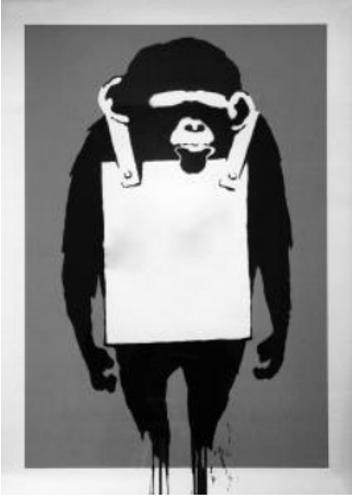BACKGROUND TO THE DISPUTE
On November 2018, Pest Control Office Limited (‘Pest Control’), filed an application for registration of a figurative EU trade mark for goods in classes 9, 16, 25, 28 and 41. The application was published on March and registered on June of the following year. On November 2019, the company Full Colour Black Limited (‘Full Colour Black’), requested for a declaration of invalidity of Pest Control’s registered mark, grounded in art. 59.1 a) in connection with arts. 7.1 b), c), and 59.1 b), of Regulation 2017/1001 (hereinafter EUTMR). The Cancellation Division accepted the request, declaring the invalidity of the contested EUTM, only based in the ground of art. 59.1 b) EUTMR.
 On July 2021, Pest Control filed an appeal against the earlier decision, requesting it to be entirely set aside. Full Colour Black requested that the appeal be dismissed.
On July 2021, Pest Control filed an appeal against the earlier decision, requesting it to be entirely set aside. Full Colour Black requested that the appeal be dismissed.
DECISION
In this case, the appeal was upheld, revoking the Cancellation Division’s decision.
In relation with art. 59.1 a), in connection with art. 7.1 b), the Board states that the representation of an ape wearing an empty label is not merely an ornamental feature, is rather an unusual combination of elements which is quite striking and will be kept in mind by the consumers, therefore this sign will allow them to identify the business origin of the artwork. Regarding art. 7.1 c), the sign cannot be descriptive by the mere fact that the sign contains an artwork. A creative work can be protected at the same time under copyright and also under trade mark law.
Relative to art. 59.1 b) EUTMR, the bad faith at the filing date refers mainly to the author of the artwork contained in the contested sign, named Bansky, who is the creator of the entity Pest Control (the EUTM proprietor), so we have to assume that Bansky’s acts are attributable to Pest Control in view of the assessment of bad faith.
Following with art. 59.1 b) EUTMR, the contested decision alleged that Bansky permitted to certain extent the use of the artwork under copyright, but the Board stated that from that cannot be inferred that he never had the intention to use the contested mark at the relevant date, more so if, as Bansky explained, this use has been expressly limited to non-commercial use, and allowed only in specific situations. Furthermore, even if at a later stage the EUTM proprietor permitted the use of the contested mark once it has been registered does not alter the previous conclusion. The second assumption made, was that the need of staying anonymous was the reason to go for trade mark protection, but even if it would be correct, it cannot prove that Bansky had no intention to use the contested mark. Finally, the statement “copyright is for losers” has no relation with the case. Taking into account this considerations, non-appreciation of bad faith.
The contested decision is annulled, consequently The Board rejects the request for declaration of invalidity in its entirety. Orders the Cancellation applicant to bear the amount of 1.720 € in respect of the EUTM proprietor’s costs in the appeal and cancellation proceedings.
[Case R1246/2021-5, 25/10/2022]


 Español
Español Deutsch
Deutsch